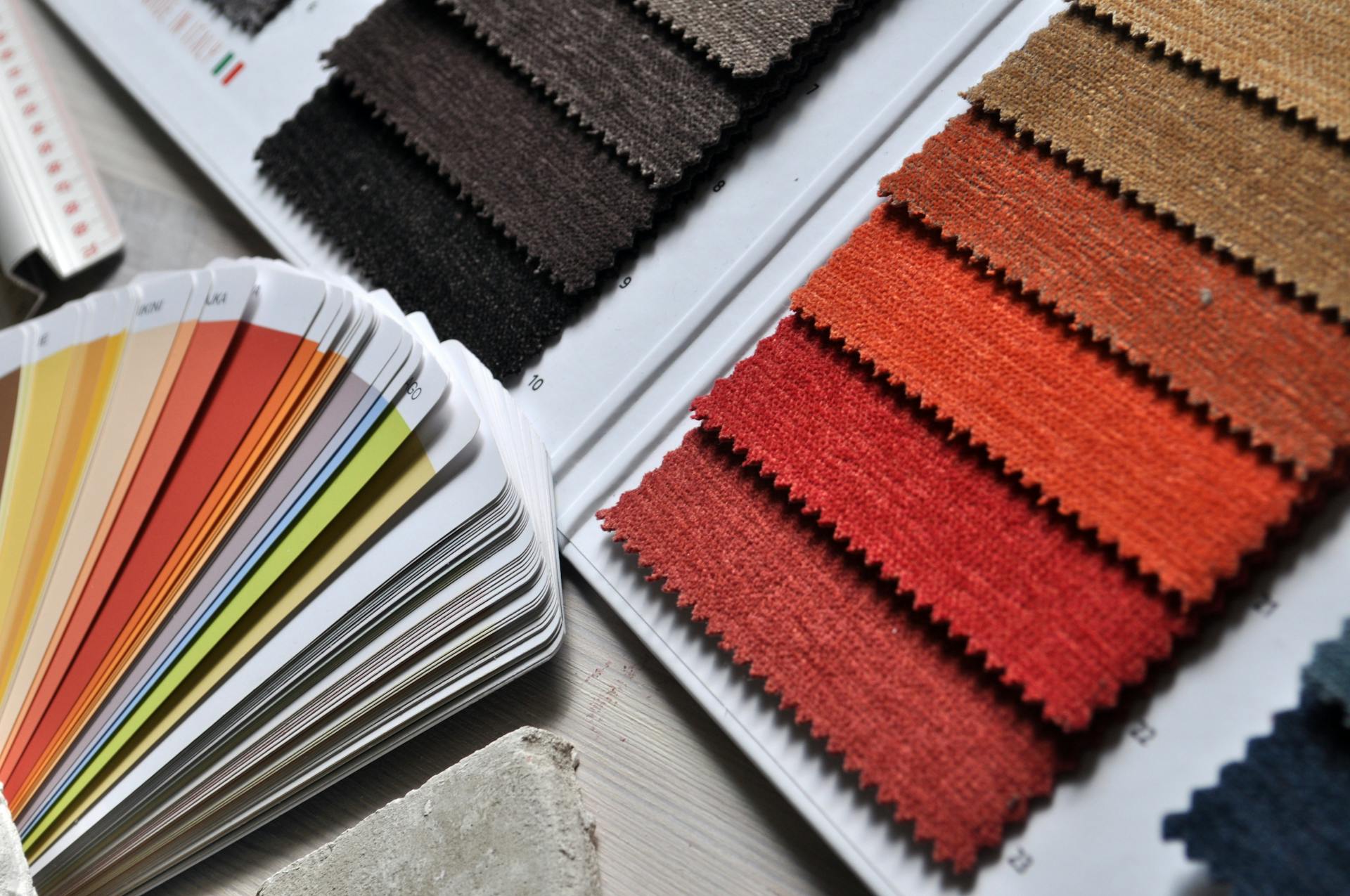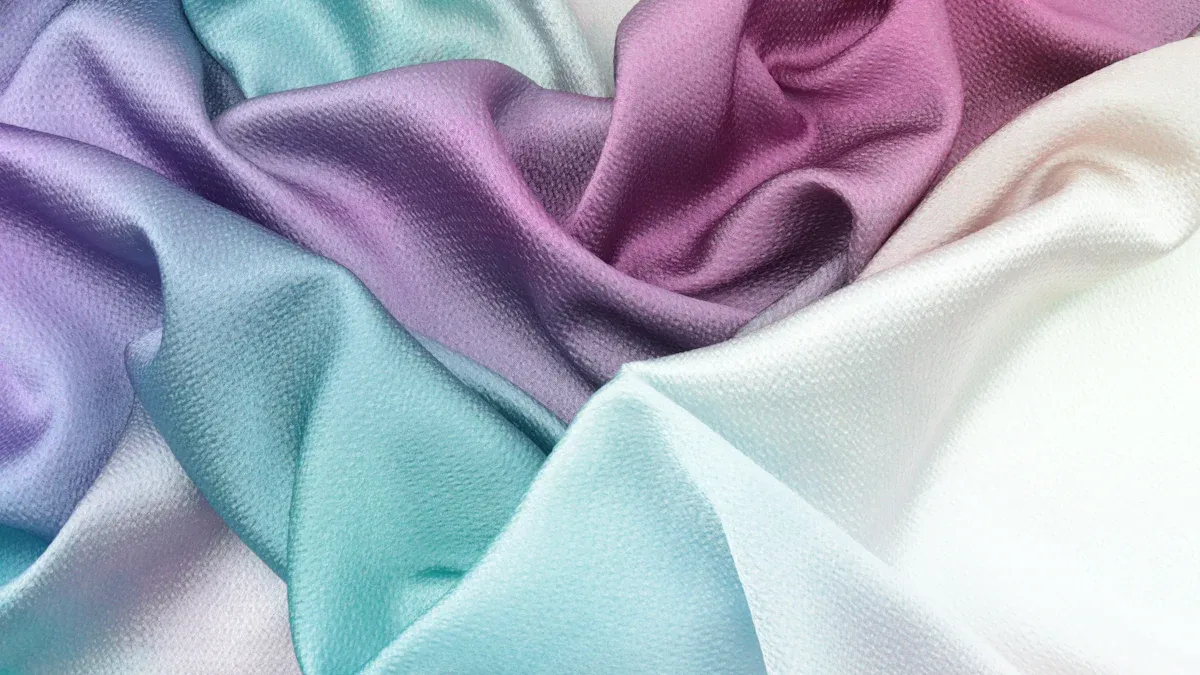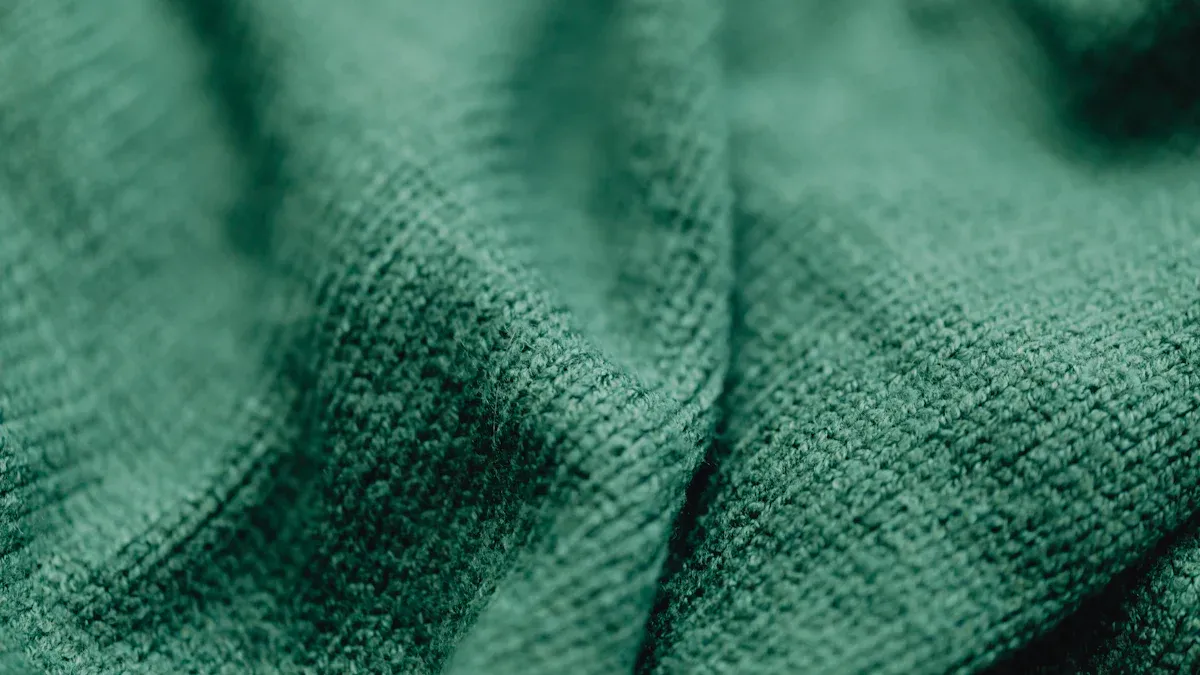How to Select the Perfect Fabric for T-Shirts: A Guide for Online Sellers

Choosing T-shirt fabric selection isn’t only a business choice. It’s about making shirts people enjoy wearing daily. The feel, strength, and appearance of the fabric are very important. Cotton and polyester are common options with different advantages. Eco-friendly fabrics are popular as buyers care about the planet. Picking comfy and good-quality fabrics through careful T-shirt fabric selection helps your business succeed.
Types of T-Shirt Fabrics

Picking the right fabric for t-shirts is important. Different materials have unique features. Knowing these helps you choose better for your business. Let’s explore some popular fabric options.
Cotton
Cotton is a popular choice for t-shirts. It’s soft, breathable, and very comfy. People love cotton for daily wear, whether at home or outside.
A 2015 Cotton Incorporated survey showed 79% think cotton improves clothing quality.
Cotton feels natural and keeps you cool in warm weather.
But not all cotton is the same. Quality depends on yarn type and how it’s made. For premium t-shirts, 100% cotton is a top pick.
Polyester
Polyester is great for activewear t-shirts. It’s light, strong, and doesn’t shrink or wrinkle. If your customers need sporty clothes, polyester works well.
This fabric dries fast, perfect for sports or outdoor use. While it’s not as soft as cotton, it’s durable and easy to care for.
Blended Fabrics
Blended fabrics mix the best features of different materials. For example, cotton-polyester blends are comfy and durable. They cost less and wrinkle less, making them versatile.
Blended fabrics are a good mix of comfort and practicality.
Linen
Linen is becoming popular for eco-friendly t-shirts. It’s light, breathable, and feels fancy. Eco-conscious buyers love it.
Linen breaks down naturally and is renewable.
It uses less water and chemicals to produce, helping the planet.
Linen t-shirts are great for hot weather. They keep you cool and comfy. If your customers like eco-friendly and high-quality items, linen is a great pick.
Flannel
Flannel isn’t a common t-shirt fabric but works for cold weather. It’s soft, warm, and cozy. Flannel t-shirts are great for layering and colder regions.
Twill
Twill fabric is strong and long-lasting. It’s perfect for t-shirts that need to handle wear and tear.
Its weave gives it a textured look, adding style. Twill is a good choice if you want something unique.
Corduroy
Corduroy stands out with its texture and strength. It’s not common for t-shirts but makes bold, unique designs. Corduroy t-shirts are great for customers wanting something special.
Factors for T-Shirt Fabric Selection
Picking the right fabric isn’t just about looks. It’s about making t-shirts your customers enjoy wearing. To choose wisely, think about what affects quality, use, and appeal. Let’s look at these important points.
Comfort
Comfort is what people notice first in a t-shirt. Soft, breathable, and flexible fabrics make a big difference. Cotton is great because it feels gentle and lets air flow. Polyester is less soft but stretches well and keeps sweat away, perfect for sportswear.
Tip: Choose fabrics that mix softness and breathability. Cotton-polyester blends are a good option for both.
Customers often say comfort matters most. They want t-shirts that feel nice all day. Softness, airflow, and flexibility are key. If your t-shirts feel good, people will buy them again.
Durability
Durability means t-shirts last longer. No one likes shirts that fade or tear quickly. Cotton, especially high-quality types, is strong for everyday wear. Polyester resists damage and stains, making it great for activewear.
Durability isn’t just about fabric. Good stitching and dyeing also matter. Strong t-shirts build trust and give customers better value.
Cost
Cost is about finding balance. You want good fabrics but need fair prices. Cotton costs more but feels natural and comfy, worth it for many buyers. Polyester is cheaper and easier to care for, great for budget-friendly choices.
Note: Pricing based on value lets you charge more for special designs or premium fabrics like organic cotton.
Maintenance
Maintenance matters to customers. Easy-to-care-for fabrics are more popular. Cotton needs careful washing to avoid shrinking. Polyester is simpler to clean and doesn’t wrinkle much.
Tip: Add clear care instructions with your t-shirts. This helps customers keep them looking good for longer.
Climate Suitability
Climate suitability means matching fabric to weather. Cotton is great for hot places because it breathes well. Polyester keeps sweat away, ideal for workouts in warm weather. Linen is perfect for eco-friendly buyers in tropical areas.
Choosing the right fabric for the climate keeps customers comfy in any weather.
Print Compatibility
Print compatibility matters for custom t-shirts. Some fabrics work better with certain printing methods. Cotton is great for screen printing, giving bright and lasting designs. Polyester works well for dye sublimation, creating sharp prints.
Note: If your business customizes t-shirts, pick fabrics that support good prints. This makes designs look better and last longer.
Best Fabric for T-Shirts: Sustainable Choices

Organic Cotton
Organic cotton is a top pick for eco-friendly t-shirts. It’s grown without harmful chemicals, making it safer for nature and people. It also uses much less water and energy than regular cotton. Did you know it can cut CO2 emissions by nearly half? That’s great for the planet!
In the U.S., organic cotton is becoming more popular. Farmers in Texas and New Mexico made over 23,000 bales in 2019. This shows the rising demand for green fabrics. Organic cotton also helps build customer trust. Certifications like GOTS prove ethical practices, making your brand stand out.
Recycled Polyester
Recycled polyester is another green choice for t-shirts. It’s made from recycled plastic, like bottles, reducing waste and reusing materials. While it’s not perfect—issues like microfiber pollution still exist—it’s a step toward using fewer fossil fuels.
This fabric is great for sporty t-shirts. It’s strong, light, and keeps sweat away, perfect for outdoor activities. If your customers want both performance and eco-friendliness, recycled polyester is a smart option.
Benefits of Eco-Friendly Fabrics
Eco-friendly fabrics like organic cotton and recycled polyester do more than help the planet. They meet the growing need for green products. The sustainable fashion market is expected to grow from $7.8 billion in 2023 to $33.05 billion by 2030. This shows more people want t-shirts made from eco-friendly materials.
Using green fabrics also improves your brand’s image. Choosing materials that save water, energy, and cut CO2 emissions shows you care about the Earth. This builds trust and loyalty, helping your business succeed in a tough market.
Practical Tips for Online Sellers
Sourcing High-Quality Fabrics
Choosing the right fabric is key to making great t-shirts. Check how strong materials like combed cotton or blends are. These fabrics last longer and stay in good shape. Compare prices to stick to your budget while offering quality options.
Think about what the fabric will be used for. For example, moisture-wicking fabrics are great for sportswear. Cotton-polyester blends work well for everyday clothing. Also, consider how well the fabric holds prints. Cotton and blends keep designs bright and clear.
To find good fabrics, build strong supplier relationships. Talking openly with suppliers helps you get better deals and steady quality. Visit trade shows to touch and see fabrics yourself. Online tools also help you manage inventory and learn about new fabric trends.
Testing Fabric Samples
Always test fabric samples before ordering large amounts. This step ensures your t-shirts meet customer expectations. Start with samples made from the actual fabric. Check details like weight, feel, and color.
Next, test how the fabric performs. Look at seam strength, color staying power, and durability. For example, cotton should stay soft and keep its shape after washing. Polyester blends should resist wrinkles and stains. Testing helps you avoid mistakes and keeps customers happy.
Partnering with Reliable Suppliers like Yoycol
Good suppliers are very important for your business. They make sure you get quality fabrics on time. Building trust with suppliers takes time. Talk clearly and often about what you need. Strong partnerships can help you handle problems like rising costs or delays.
Balancing Quality and Cost
Balancing quality and cost is tricky but important.
Using a clear process can lower mistakes and save time. This helps you keep high standards. Choose cotton for premium t-shirts or polyester blends for cheaper options. This way, you meet different customer needs without lowering quality.
Tip: Always focus on making customers happy. Good fabrics bring repeat buyers and great reviews.
Picking the best fabric for t-shirts is very important. Buyers look for soft, strong, and eco-friendly materials. Fabrics like cotton and polyester help meet these needs. Making clothes affects nature, but green fabrics lower the damage. Use eco-friendly options and work with suppliers like Yoycol to succeed.

